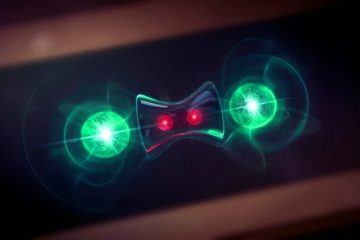John Horgan in Scientific American:
 Studying quantum mechanics, which I’ve been doing for the last two-plus years, has served as an antidote to my tendency toward habituation, taking reality for granted. Wave functions, superposition and other esoterica remind me that this is a strange, strange world; there is a mystery at the heart of things that ordinary language can never quite capture.
Studying quantum mechanics, which I’ve been doing for the last two-plus years, has served as an antidote to my tendency toward habituation, taking reality for granted. Wave functions, superposition and other esoterica remind me that this is a strange, strange world; there is a mystery at the heart of things that ordinary language can never quite capture.
I’m thus thrilled by this year’s Nobel Prize for Physics. John Clauser, Alain Aspect and Anton Zeilinger won for experimental probes of entanglement, a peculiar connection between two or more particles. The Nobel Foundation’s press release emphasizes the applications of this prize-winning work; researchers are building “quantum computers, quantum networks and secure quantum encrypted communication” based on entanglement. But I value the work of Clauser, et al., because it upends our commonsense notions about what is real and what is knowable. It rubs our noses in the riddle of reality.
More here.
